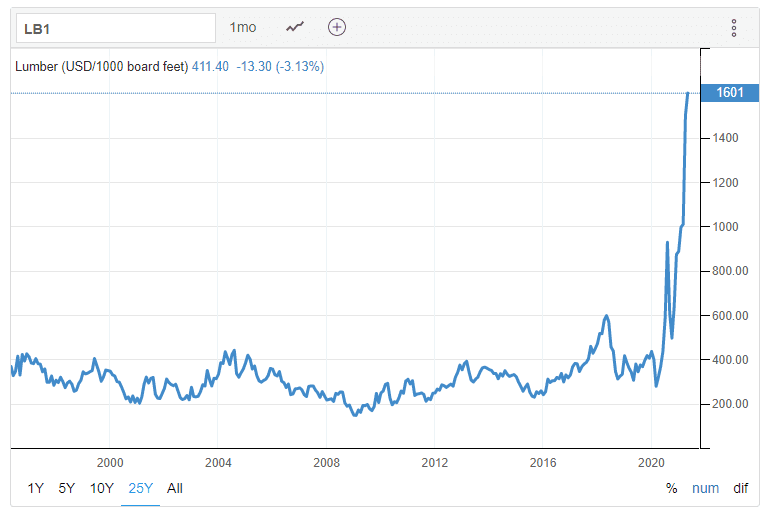Why is OSB Going Up in Price: Key Factors Explained
OSB prices are rising. Why is this happening?
Oriented Strand Board (OSB) is a popular building material. It’s used in many construction projects. Recently, its price has been increasing. This change has left many wondering about the reasons behind it. In this blog post, we will explore the factors contributing to the rising costs of OSB.
From supply chain issues to market demand, understanding these elements can help you navigate the current market trends. Stay with us as we delve into the details behind the OSB price surge.
Introduction To Osb Pricing
OSB, or Oriented Strand Board, has been used for decades. It is a popular building material. Builders love it for its strength and cost. In the past, OSB prices were stable. But, they have changed recently.
Today, OSB prices are rising fast. Many factors cause this change. High demand is one reason. More homes are being built now. Supply issues also play a part. Factories can’t keep up. Raw materials are scarce. This makes OSB more expensive.
Supply Chain Disruptions
The COVID-19 pandemic caused many factories to close. This led to less production of OSB. Workers were sick and could not work. Safety measures slowed down work. Less OSB was made.
Shipping delays are common now. Ships take longer to arrive. Ports are crowded. This means OSB takes more time to reach stores. Transport costs are higher. Fuel prices have also gone up. All these factors increase OSB prices.
Raw Material Shortages
Timber is crucial for OSB. Fewer trees are being cut down. This reduces the amount of timber available. Forest fires destroy many trees. Pests also harm trees. These issues limit the timber supply.
Timber is used for many things. Construction needs a lot of timber. Furniture making also uses it. Paper production requires timber too. These industries compete for the same timber. This competition raises prices. OSB manufacturers struggle to get enough timber.
Increased Construction Activity
Rising construction activities have led to higher demand for OSB, causing prices to increase. Builders need more materials, driving up costs.
Housing Boom
New houses are being built at a fast rate. More people want their own homes. This creates a high demand for building materials like OSB. With more homes under construction, the price of OSB goes up. Builders need more OSB for floors and walls. This makes it more expensive.
Commercial Projects
Large buildings are also being built. Offices, stores, and factories need a lot of OSB. These commercial projects use tons of OSB. When many big projects start, they need a lot of wood. This pushes the price up. OSB becomes more costly because of this high demand.
Labor Shortages
There is a shortage of skilled workers in the industry. Fewer people are training for these jobs. Older workers are retiring, and young people are not replacing them. This creates a gap. Fewer workers mean less production. This drives prices up.
Wages are rising due to the labor shortage. Companies must pay more to attract workers. Higher wages mean higher costs for production. These costs get passed on to buyers. So, prices go up. It is a simple supply and demand issue.

Credit: www.silvaris.com
Environmental Regulations
Sustainability standards are getting stricter. New rules mean companies must follow eco-friendly practices. This can make production slower. It also costs more money. Higher costs can lead to higher prices for OSB.
Logging restrictions are increasing. Fewer trees can be cut down. This means less raw material for OSB. Less supply often means higher prices. Protecting forests is important, but it raises costs.
Market Speculation
Investor Influence plays a big role. Some investors buy a lot of OSB. They believe the price will go up. This creates high demand. High demand pushes prices up. Investors also hold onto OSB. They wait for prices to rise more. This limits supply. Limited supply means higher prices.
Price Volatility is another factor. Prices can change quickly. This happens due to many reasons. One reason is natural disasters. These can destroy forests. Less wood means less OSB. Less OSB means higher prices. Another reason is market trends. Trends can change fast. This affects prices too.

Credit: www.facebook.com
Future Outlook
The price of OSB is expected to remain high for some time. Supply chain issues and high demand will continue to affect prices. Experts believe prices may stabilize but at a higher level. Builders and homeowners should plan for higher costs.
Finding alternatives to OSB can help manage costs. Using plywood or other materials might be an option. Buying in bulk when prices are lower can save money. Recycling old materials is another good idea. Consider these solutions to reduce expenses.

Credit: www.globalwoodmarketsinfo.com
Frequently Asked Questions
What Is Osb?
OSB stands for Oriented Strand Board. It is a type of engineered wood. It is used in construction.
Why Is Osb In High Demand?
OSB is in high demand due to housing booms. Increased home renovations also drive demand. Supply chain issues exacerbate the problem.
How Does The Pandemic Affect Osb Prices?
The pandemic disrupted supply chains. This led to reduced OSB production. High demand and low supply increased prices.
Are Raw Material Costs Affecting Osb Prices?
Yes, raw material costs significantly impact OSB prices. Lumber shortages drive up costs. Increased production expenses are passed to consumers.
Conclusion
The price of OSB continues to rise due to high demand and supply issues. Builders and homeowners feel the pinch as costs climb. Understanding these market factors can help you plan better. Keep an eye on trends and consider alternatives if costs remain high.
Stay informed, make smart choices, and adapt to changes. Being prepared will help you navigate these price challenges effectively.







